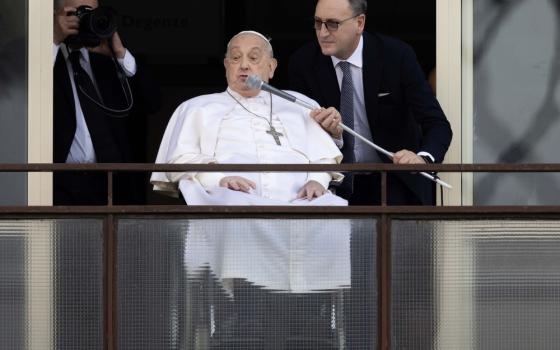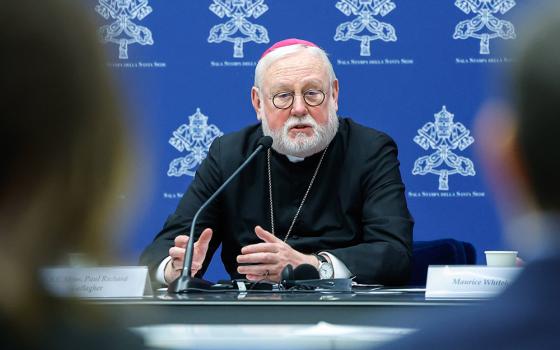Movies have always played an important role not only in breaking through cultural taboos but also in helping shape the identity of a people to themselves and to the world at large. The film "Exodus" starring Paul Newman and based on the 1958 book by Leon Uris, had profound and lasting effects on American Jewry, and American public opinion.
According to Israel's Haaretz newspaper, the book and movie succeeded in "tailoring, altering and radically sanitizing the history of the founding of the State of Israel to flatter the fantasies and prejudices of American Jews." Israel's founding Prime Minister David Ben Gurion admitted as much. "As a literary work it isn't much. But as a piece of propaganda, it's the best thing ever written about Israel." "Exodus" validated Jewish peoplehood, swelled American Jewish pride in Israel and "Americanized" the causes of Zionism and Israel.
On the other hand, according to prominent Jewish-American journalist Jeffrey Goldberg, "it created the impression that all Arabs are savages. This was most unhelpful, and the lingering effects of [the book's] sometimes-cartoonish portrayal of Israel's founding can still be seen in the opinions of the more unthinking among Israel's supporters."
Palestinian national cinema did not even exist at the time. It is a relatively young cinema and it wasn't until the late 1980s that Palestinian movies started to make an appearance on the international movie market. Palestinian cinema is unique in that it exists in the absence of statehood. Yet, in the absence also of any semblance of a peace process with Israel, Palestinian cinema continues to make huge strides in providing a more nuanced, contextual and honest image of Palestinians to Israelis and the world at large.
Palestinian filmmakers are now shooting Palestinian films in Palestinian cities with Palestinian actors (with the occasional Israeli Arab, Egyptian and Algerian) who speak the Palestinian dialect. With Israel (as some of the films are joint productions) or without it, they are bringing a Palestinian story to the entire world.
Israel has provided some pushback. In 2002, the Academy Award-nominated film "Divine Intervention" generated international interest because of controversy over whether it could qualify for an Oscar submission for Best Foreign Film, due to Palestine not officially being a nation state. However it was considered for an Academy Award the following year when the Academy decided to treat Palestine in the same way as Hong Kong.
The following five movies provide different examples of how Palestinian cinema has tackled some very serious topics related to the Israeli-Palestinian conflict. The movies are thought provoking and intense, raising as many questions as they provide answers. In addition, they deserve special recognition for their maturity in not acting as vehicles for cartoonish or prejudiced portrayals of Israelis.
"Paradise Now" (2005) was the first Palestinian movie to achieve international fame by winning the Golden Globe for best foreign language film in 2006 and getting Palestine its first-ever foreign-language Oscar nomination. Directed by Israeli-born Palestinian Hany Abu-Asad and produced by Palestinian, Dutch, French, German and Israeli producers, the film tackles the emotionally charged issue of suicide bombing.
Director Abu-Asad knew full well he was stepping into a political minefield by making a feature film on this subject, risking either being accused of glorifying terrorism or of betraying resistance to the Israeli occupation. His solution is to tell the story from a human point of view, describing an action rather than justifying it.
"Paradise Now" is the story of two Palestinian childhood friends who have been recruited for a major operation in Tel Aviv, centering on what is presumably their final day on earth. Leaving their families completely in the dark, the two friends cross over into Israel with the bombs attached to their bodies. The operation does not go according to plan and the two friends are forced to reconsider their stances after a woman comes into the picture. She provides the voice of reason about the futility of armed resistance. Ultimately only one of them goes through with his mission.
The film shows the seeming deception that goes into recruiting a suicide bomber and the emotional trauma that goes with it, portraying confused recruits struggling with the justification of armed resistance.
Abu-Asad dismisses the simplistic analysis that suicide bombers are "brainwashed automatons." Instead, his research showed that people acted out of conviction. "The daily humiliation is so big that people just agree to it," he said. "The biggest motivation is the feeling of impotence. You are captured in your own city; you can't do anything about it; you are nothing." He adds: "The official censor in Israel saw it and approved it for release. There are enough people in Israel who are open-minded and curious about this phenomenon and will want to see it to judge for themselves, not to be led by propaganda."
Rating the movie a "must-see", in the Jewish Virtual Library, David Krusch writes: "Paradise Now does open the door for meaningful discussion of the issues surrounding the conflict. It goes against the grain of a commonly held Western notion of suicide bombers -- that they are soulless and programmed to kill without emotion or regret. Instead, Khaled and Said are flesh-and-blood human beings, caught in between religious extremism, nationalism, and the will to live."
Another movie that deals with the issue of suicide bombing is "The Attack" (2012). Directed by Lebanese-born Ziad Doueiri, the film is about a successful Israeli-Arab surgeon whose wife blows herself up in a crowded Tel Aviv restaurant. The doctor is a well-integrated and apolitical man whose friends are mostly Jews, and his wife's act explodes his life. Determined to understand why, the doctor travels to Nablus and traces the threads of his wife's secret life.
Reymonde Amsellem, the Israeli actress who played the female suicide bomber, told the Jerusalem premiere's audience that "to me, she was a very mysterious character. … I saw that the biggest reason for her helpless feeling was that you can have a husband, a life, everything, but you don't have a place you can call home," she said, adding, "It's about people on both sides of the conflict, how similar they are, and how illogical the conflict is."
The film airs issues that Israelis too have grappled with. "It's a difficult one," said Oren Barak, a Jewish political science professor at Hebrew University. "I don't support suicide bombings. But it showed the emotional side, the perspective, from different angles."
"It gave the feeling that the characters were real and that you could identify with them, although, of course, not always with their actions," he added. That "was quite unusual, since filmmakers in the two countries — Israel and Lebanon — more often than not present the other side, if at all, in a 'caricaturist' way, which tells you more about them than about the other side."
The 2013 film "Omar" came after the U.N. General Assembly overwhelmingly voted to upgrade the Occupied Palestinian Territories from an observer entity to a nonmember observer state in 2012, thereby allowing the Academy Awards to label "Omar" a film from "Palestine."
The $2 million film was funded almost entirely by private Palestinian investors, it was directed by a Palestinian citizen of Israel, its actors are Palestinian, and it was filmed in the Palestinian city of Nablus and in Nazareth.
"Omar" earned its director Hany Abu-Asad and Palestine a second Oscar nomination in the best foreign language film category. The film tackles an extremely sensitive among Palestinians, collaboration with Israel. The film centers on a Palestinian man caught up in the violence surrounding him and imprisoned by the Israelis, who pressure him mercilessly to betray his childhood friends, using a love triangle to secure his cooperation.
Ab-Asad's interest in the story of "Omar" came from his sense that he was being watched while filming "Paradise Now", reminding him of what a former Shin Bet director said was the agency's ultimate goal as leaving Palestinians uncertain they could trust anyone. "You start becoming insane," Abu-Assad recalled. "You start not to trust anybody, because this feeling became so intense."
"Bethlehem" (2013) is another movie that deals with collaboration and the relationship between handler and his collaborator victim. The movie is a joint Palestinian-Israeli production, directed by Yuval Adler, and is co-written by Adler and a Palestinian journalist. Adler describes the phenomenon of collaboration as one that "makes you want to recoil from it. What we are trying to do is find ways to access it without recoiling."
Adler achieves this by making the informant in "Bethlehem" a kid: Sanfur, slang for "Smurf," was 15 when he was recruited by a Shin Bet field officer. The story revolves around the fraught and emotional relationship between the Israeli handler who becomes close to Sanfur, while at the same time pressuring him to inform on his older brother, the leader of a suicide-bombing cell during the Second Intifada.
"Bethlehem" galvanized Israeli audiences by focusing not on one side of the conflict, but on the morally hazardous middle ground where intelligence is gathered. Its realistic attention to detail even earned it a Shin Bet screening to its agents.
"The atmosphere reminded me of my life," said Gezer, a retired field officer with Shin Bet. "I loved a source when at the end of the meeting I had a few pages of good material. I hated him when at the end of the meeting, I didn't. After all, the source is a tool. And everybody has to remember it."
The final and most recent internationally acclaimed Palestinian film is "The Wanted 18" (2014). Co-directed by Palestinian Amer Shimali and Canadian Paul Cowen, it is filmed as a documentary and woven from a variety of film materials (animation, news footage, home movies, interviews, reenactments).
"The Wanted 18" brilliantly exposes one of root causes of the Israeli-Palestinian conflict: the economic dominance of one nation, Israel, over another, Palestine. It demonstrates the power of mass mobilization and nonviolent resistance to the Israeli occupation during the First Intifada, an era that is too often simplistically depicted as stone-throwing Palestinian youth facing armed Israeli soldiers.
"The Wanted 18" tells the true story of a Palestinian committee in the town of Beit Sahour, near Bethlehem, that purchased a herd of cows from a nearby kibbutz so that the community could get fresh milk during Israeli curfews. Their venture is so successful that the Israeli army takes note and declares the farm an illegal security threat and the cows as "dangerous for the security of the state of Israel."
The dairy is forced to go underground for four years with the Israeli army in pursuit. To the Israeli occupation, the cows represented economic self-determination, which if left unchecked could lead to more and more economic independence for Palestinians.
Palestinian movies demonstrate how intertwined the lives of Israelis and Palestinians are. Many films are filmed in both the Occupied Palestinian Territories and Israel. Many films have an Israeli and Palestinian (or Arab-Israeli) director. In fact, the cooperation between the two sides and the sensitivity with which they tackle very serious issues shows how far ahead of the political process they are and how Palestinian and Palestinian-Israeli movies may serve as pioneers of a future peace.
[Ra'fat Aldajani is a Palestinian-American writer and commentator.]




